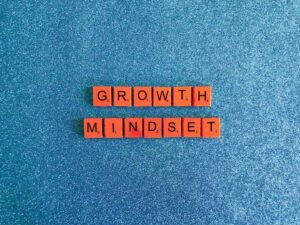Most people today feel stressed. Maybe it comes and goes. Perhaps it’s chronic. Some people feel extreme stress that causes chronic illnesses. Indeed, stress is a grave matter. Fortunately, mindfulness stress reduction helps.
If you seek to reduce stress, mindfulness is a great approach. Read on to learn what Mindfulness-Based Stress Reduction is. Also, learn its most famous techniques and the biggest benefits from this practice.

Mindfulness Stress Reduction: What Is It?
Let’s talk about MBSR. In short, mindfulness-based stress reduction (MBSR) is mind therapy. It helps ease signs of anxiety, depression, addiction, and more.
How? By grounding you in the present. It keeps you aware. Calm. Relaxed. As a result, you’re less likely to panic. Also, you’re less likely to worry about the past or future.
Mindfulness stress reduction is a weekly practice. It may include meditation and yoga. I’ll dig deeper into MBSR methods below.
Typically, mindfulness techniques go with other treatments. For instance, medicine and cognitive behavioral therapy. Next, let’s go over the history of MBSR.

Background
Let’s go back in time. In 1979, scientist, meditator, and yogi Jon Kabat-Zinn formed MBSR. He founded the Stress Reduction Clinic. It was based out of the University of Massachusetts.
Since then, there has been more research on mindfulness stress reduction. For instance, one study found that MBSR helped reduce burnout, anxiety, and depression in healthcare staff.
Mindfulness-based stress reduction is now global. Jon Kabat-Zinn meant it as a public health effort. But, now it’s much bigger. It brings more health. More wellness. Even wisdom.
Research on the early MBSR program showed it could heal physical and mental pain. Mindfulness stress reduction helps us reach personal and public health objectives. Why? Because it works on almost every health issue. Further, stress reduction helps people cope with almost any disease. Indeed, even chronic illnesses can be eased due to mindfulness stress reduction.
But Jon Kabat-Zinn didn’t stop there. He kept going. Along with fellow teachers, he grew the movement. Over time, it spread into many fields. For example, mindfulness joined the world of hospitals, schools, corporations, and sports.
How big is mindfulness stress reduction today? Very. More than seven hundred medical facilities nationwide have MBSR programs. All in all, it has burst in popularity since its start in 1979. Impressive!
Now you know a bit about the history of mindfulness stress reduction. Next, I’ll show you the main techniques used in mindfulness stress reduction programs.

Top 5 Popular MBSR Techniques
Time for techniques. MBSR programs are led by certified teachers. They provide students with mindfulness stress reduction training weekly. Typically, these programs last eight weeks. Also, the length of sessions may vary. They could last two to three hours.
MBSR programs promote better work performance. They also promote lower stress and anxiety. How much do they cost? It varies. You may even find free online courses.
During these programs, the techniques occur in groups. However, people will also learn how to use mindfulness practices in their homes.

Breathing Techniques
Keep calm and breathe. Gaining control over your breathing helps. How? By dropping your heart rate and blood pressure. Learning to breathe consciously helps keep you calm. Breathe in. Breathe out. Repeat. See? It’s already working.
Further, you can focus on the breath to create a grounding effect. As a result, your worrying mind is calmed. Ultimately, you feel less stressed due to your conscious breathing habits.
Meditation
Meditation is the art of focus. Many types of meditation help with mindfulness stress reduction. For instance, you can learn body scan meditation. Mantra meditation. Mindful eating. The list goes on. Your teacher may teach you to focus on one object. In short, by tuning your focus, you reduce stress.
Below is a list of common types of meditation:
- Mindfulness Meditation
- Movement Meditation
- Mantra Meditation
- Transcendental Meditation
- Spiritual Meditation
- Focused Meditation
- Progressive Relaxation
- Visualization Meditation
- Body Scan Meditation
- Chakra Meditation
- Sound Meditation
Next, we’ll look at a very famous mindfulness technique. Yoga!
Yoga For Mindfulness Stress Reduction
This is a good example of a mind-body practice that brings mindfulness stress reduction. Typically, a tutor teaches you gentle movements. Also, you’ll learn to align your breathing with your physical form. Many types of yoga exist. Each type has its own intensity level.

Gratitude Journaling
Gratitude is vital. In MBSR programs, the teacher shows you the habit of gratitude journaling. Over time, your mind will learn to focus on the good things. You may see changes in as little as three to four weeks, This mindfulness training helps those with depression or anxiety. In short, giving thanks helps.

Homework
Don’t worry, this is fun homework! Indeed, your teacher doesn’t want you to walk away empty-hand. The goal of MBSR programs is to equip you to fix your troubles at home. So, during these programs, teachers usually give assignments. Students must learn to practice these daily.
These assignments may include daily home meditation. They may consist of mindfulness workbooks. For example, this mindfulness workbook by Bob Stahl, Ph.D., teaches daily mindful habits.
These reduce stress in your life. If you’re looking to ease stress, learning these habits is crucial. So, the skills in “A Mindfulness-Based Stress Reduction Workbook” solidify those skills.
Moreover, the book features audio downloads. It also has new meditation exercises. Licensed therapists and clinical psychologists reviewed this workbook. The result? They recommend it to anyone interested in learning how mindfulness can lower stress. Mindfulness stress reduction is one of the most life-changing skills you can discover. And this book teaches it engagingly.
This book has everything from concise exercises to mindful reflections and inspiring tales. Remember, MBSR is a clinically proven approach to reducing stress. So, it’s no wonder readers are excited to learn how to live a calmer, healthier life using the advice and skills this book teaches!

Benefits of Mindfulness Stress Reduction
Time for benefits. Next, I’ll show you the biggest benefits of mindfulness stress reduction. Notably, there are more benefits than I’ll cover here. However, the following are the most vital outcomes of this good practice.
Stress Relief
First, let’s go over the clearest benefit. Stress reduction is, of course, the main goal of MBSR. It’s also the main result. How does it work? It’s simple. In short, when you control your thoughts and emotions, you manage stress.
When you notice physical and mental distress, you can work out how to resolve it. There’s more. Meanwhile, you may find you’re not in such a bad situation. You can use mindfulness to control your reactions. Also, use it to stop overreaction.
Further, you stay calm when you allow yourself time to process emotions. It takes time to heal. Learning to look at your feelings without judgment is the key. It helps avoid and negate stress.
Mindfulness habits such as controlled breathing help slow the physical distress of your body. How? By lowering your heart rate and blood pressure. These physical changes offer stress relief.

Manage Anxiety and Depression
Mindfulness stress reduction techniques help with most mood disorders. For example, they help reduce signs of anxiety and depression. Generally, this works because it keeps you grounded in the present.
You may feel fear or hopelessness. You feel stuck in a cycle of worry about the past or future. It’s tough.
However, when you learn to enjoy and be fully present at this moment, you calm the chaos in your mind. You slow down. You get out of that bad cycle.
In fact, one study showed that mindfulness-based cognitive therapy was as useful in treating depression as anti-depressants. Mindfulness also helps control suicidal thoughts and behaviors.
You can conquer your most vicious thoughts when you’re aware. You can treat them without judgment. Eventually, you can learn to see them and let them float away. See? It’s simple. But, it takes time.
In this way, mindfulness stress reduction lessens depression and anxiety. As always, working with your doctor when seeking treatment is vital. However, using mindfulness techniques is risk-free. It’s an accessible method. It helps you start making great changes in your mental health.

Cognitive Health
Mindfulness stress reduction leads to other benefits. For one, brain health. For example, studies show that mindfulness boosts focus and attention. Also, long-term memory may improve.
People with ADHD may also benefit from MBSR. Moreover, it helps people with biases. For instance, age or racial bias drops as people learn to control these negative belief cycles.
Ready To Start Using Mindfulness Stress Reduction?
In short, MBSR is a good way to control stress. You’ll reap benefits such as lower stress and fewer signs of anxiety and depression. Sounds good, right? If you’re ready to start, it’s as simple as a few minutes of daily meditation. Relax more. Stress less.
Also, check out local or online MBSR programs. Use the tools you find to start doing mindfulness stress reduction. Your mental health will thank you!
Which Mindfulness-Based Stress Reduction technique do you think is the easiest to practice? Let me know your choice in the comments below!
Reference:
Lamothe M, Rondeau É, Malboeuf-Hurtubise C, Duval M, Sultan S. Outcomes of MBSR or MBSR-based interventions in health care providers: A systematic review with a focus on empathy and emotional competencies. Complement Ther Med. 2016 Feb;24:19-28. doi: 10.1016/j.ctim.2015.11.001. Epub 2015 Nov 27. PMID: 26860797.







